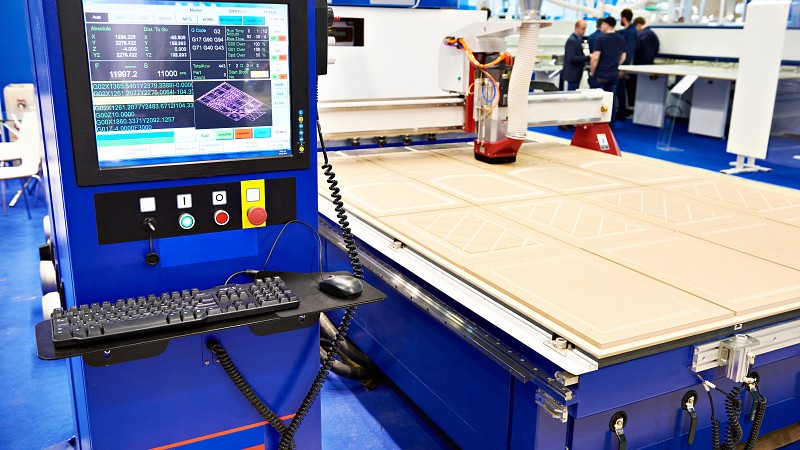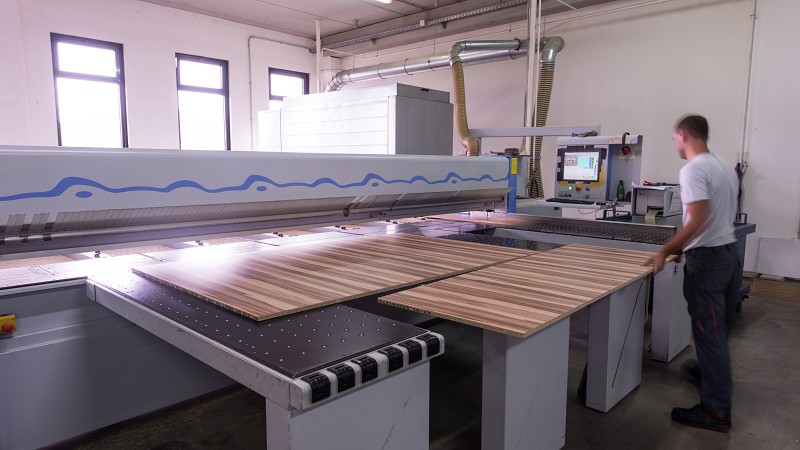The aim of WOODigital is to develop a dual training system to improve the digital skills of young Europeans interested in the wood and furniture sector.
WOODigital (2020-22) aims to develop a dual training system to enhance digital skills of young Europeans interested in entrepreneurial and employment opportunities in the woodworking and furniture sector. The model proposed is thought to be deeply work-based and include international mobility, so as to provide young learners with the opportunity to apply knowledge in real working situations.
-
The actual situation

The woodworking and furniture sector is a consolidated industry in Europe, with +300.000 businesses and +2 M people employed (DG Growth). The sector is almost made up of MSMEs (<10 employees) with relatively few large firms, these facts justifying the necessity to run cooperative actions across Europe if MS (micro and small enterprises) want to be effective and successfully keep up with competition (especially from China and US), facing sector-specific challenges.
The labour-intensive nature of the woodworking and furniture industry clashes with an ageing workforce and the difficulties in hiring and recruiting qualified young people not attracted by what they consider a traditional manufacturing sector. The industry is in the top-20 sectors suffering from bottleneck problems due to the lack of applicants with adequate skills and lack of willingness to take jobs (Mapping and Analysing Bottleneck Vacancies in EU Labour Markets, EC Report, 2014). From 2005 to 2014, the number of 25-39 aged employees has been declining by -7% (from 45% to 38%), whereas people +55yrs are increasing by +6% (from 9% to 15%).
Furthermore, in Europe there are recorded +2M unfilled vacancies, including in the woodworking and furniture sector, despite it being estimated that +14% of people aged 15 to 24, and +18% in the age group 25 to 29 (Eurostat, 2019) are unemployed.
-
The main objectives

Main objectives of WOODigital are as follows:
- Building a multi-stakeholder framework to design a dual system model and training offer that are fit for purpose and relevant for the sector by building on and enhancing existing knowledge and practices;
- Optimizing and sharing a well-organized dual system model for fostering digital skills in the woodworking sector by acting upon specific methodological guidelines and promoting innovative training approaches, including mobility and e-learning;
- Developing a student-centered training offer suitable for being exploited and improved in other MS (micro and small enterprises) and initiatives, especially focusing on manufacturing industries.
-
The expected results

In details, expected results of WOODigital are:
- Boosting cooperation and dialogue between different stakeholders (SMEs and entrepreneurs/employers representatives, VET providers, innovation experts and professionals) aimed at driving innovation across Europe both at training-level and industry-level;
- Improving woodworkers digital skills and making them more capable to cope with and resilient to changes occurring in the sector and led by the Industry 4.0 through VET offers and systems more responsive and innovative;
- Promoting innovation in the woodworking and furniture VET offer/ supporting school-to-work transition, inclusion and employability of young people by enhancing learning of digital skills in work-based transnational settings;
- Develope, test and validate a dual model suitable for enhancing learning mobility, including a set of innovative teachings, learning and assessment practices; and
- Setting a quality-driven circle by lessons learnt and outcomes from other projects, to further create synergies among woodworking-based projects at EU level, and then inspiring other national initiatives (Horizon Europe, COSME, ESF, among others).
-
Target groups

The action is targeted to help the EU youth (ages 18 to 35) becoming key drivers for properly answering to the challenges posed by the Industry 4.0 and IoT, which have been soundly reshaping the woodworking and furniture industry in recent years.
As well, it contributes to feeding a sector made up almost completely by SMEs and aged workforce with young skilled workers, and thus avoiding the loss of European manufacturing and craftsmanship history.
Dual vocational training combines activities carried out in both the training center and on the job.
The project thrives within both cooperation and knowledge frameworks of other EU projects (WOODUAL, FUNES, IM-FUTURE, DIGIT-FUR and others), which have been claiming the use of dual training system in the wood and furniture sectors to improve digital skills and employability of young people and cooperation between business and VET providers across Europe.
At the core of the project there is a strategic management of knowledge by:
- Fostering teaching and learning of digital skills, WOODigital strives to strengthen employability and key competences of young people, making woodworking a knowledge-based industry. The more woodworking processes and products are digital and digitalized, the more data and information are available to SMEs and other relevant players to make their offer more attractive and valuable for the market, enhancing the decision-making process;
- Running a feedback loop, the partnership is committed to nurture strategic links to further enhance synergies among woodworking-based projects at EU level;
- Being involved in long-lasting cooperation and business relationships, partners have been producing new knowledge that is worth investigating through additional resources, facilitating a knowledge-transfer process between education and business for mutual improvements.


 English
English  Français
Français  Italiano
Italiano  Magyar
Magyar  Español
Español 
